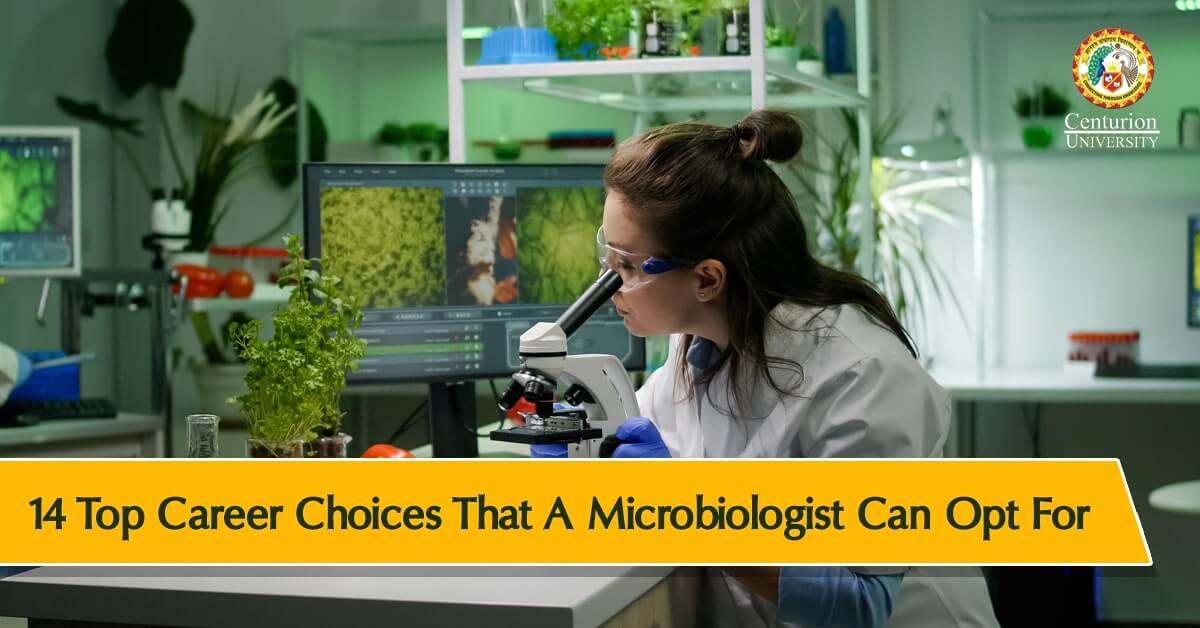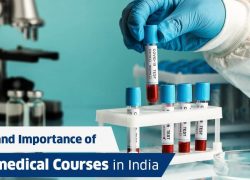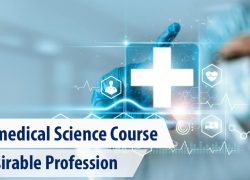Every person studying microbiology has a distinct skill set. Fortunately, there is a number of career choices in this field of study, letting you opt for any of these you prefer and be a part of the industry. Based on the education and experience that you have received, you can work for any position ranging from that of a laboratory assistant to the Director of research.
If you are a student pursuing a degree in microbiology but still unsure which career path you should opt for, here is a list of microbiology careers we have jotted down to help you make a choice and shine bright in your future ventures.
- Biotechnologists
Biotechnologies hold the responsibility of working in the agriculture, chemical, food, and environmental conservation industries. As a biotechnologist, you will enjoy the responsibility of manipulating the genes of selective microorganisms. While an environmental biotechnologist is trained and educated to develop powerful microorganisms capable of cleaning polluted water, medical biotechnologists are vested with the responsibility of producing medicines adhering to effective techniques like cell culture.
- Clinical Laboratory Scientists
Medical Technologists or Clinical Laboratory Scientists are employed in different areas, including veterinary, clinical, national, and state health laboratories. They are responsible for analyzing urine, blood, tissue, and other body specimens to determine the reason behind any infection present in the patient, followed by deciding on the antibiotics that will be effective to treat the infection. The field of clinical laboratory scientists is evolving as genetic, and mass spectrophotometry techniques are gaining popularity.
- Food Scientists and Technologists
As a food microbiologist, you will be responsible for testing various beverages and food products for pathogen detection like Listeria monocytogenes, Salmonella, and other spoilage microorganisms like lactic acid bacteria. Food scientists and technologists assist their firms to meet the food quality and product safety standards in the best possible way.
- Immunologists
An immunologist’s role is to investigate how a body takes up to protect itself against germs and diseases. The research areas here include biofilms, immunologic mechanisms, HIV/AIDS, biodefense, respiratory pathogens such as influenza, and vaccine development.
- Mycologists
The study of disease-causing and antibody-producing fungus is carried out by mycologists. AQs mycologists, you will be either working in a research, pharmaceutical, or clinical laboratory. Some mycologists also need to work in the environmental laboratories analyzing the indoor air to trace mold spores.
- Parasitologists
Parasitologists are responsible for investigating the manner in which parasitic microorganisms end up infecting the living hosts, as well as reproduce and spread diseases.
- Personal care cosmetic and product scientists and technologists
Personal care cosmetic and product scientists and technologists are vested with the responsibility to ensure product safety for products like shampoos, conditioners, baby wipes, eye shadows, and more. These products are tested to detect the presence of any disease-causing germs or microorganisms like Pseudomonas aeruginosa.
- Pharmaceutical Technologists and Scientists
As a pharmaceutical technologist and scientist, you will be responsible for looking after the safety of pharmaceutical products. While scientists carry out research work and develop new therapies and drugs, pharmaceutical technologists test the raw materials as well as the finished products to determine the presence of infection-causing microorganisms like Burkholderia cepacia and Staphylococcus aureus.
- Sales
Sales is a rewarding career that many microbiologists take up. Since they come from a strong science background, they are quite capable of helping customers select the best skin care or health products taking their situation into concern. A lot of microbiologist salespeople come with a microbiology degree or something related to it. The best part is that they get the scope to travel to different parts of the world to meet new distributors and customers.
- Science Writers
If you are from a microbiology background and love writing, you can consider taking up a career as a science writer. A strong connection with this field is required to enjoy this career scope with success. You can also become a blogger or science journalist to reach out to young readers.
- Professors and Teachers
Professors and teachers share their love and interest in microbiology by teaching and educating students at high school, university, and doctorate levels. They are even responsible for planning and executing the lesson plans to teach students the various topics in the field of microbiology, including different traits of microorganisms along with related developments.
- Technical Support Specialists
Technical support specialists are responsible for offering technical assistance to the customers who are using products of a manufacturer. They help the customers select different microorganism strains, guide them on how to use the products as well as to conduct distributor and customer training sessions.
- Virologists
As a virologist, you will be responsible to study different viruses affecting animals, humans, insects, plants, fungi, and bacteria within a natural, agricultural, clinical, and community environment. You will also hold a prominent role in developing vaccines for different types of diseases and the yearly influenza shots.
- Water Quality and Laboratory Technicians
Water treatment plants, municipalities, and local and state agencies require technicians to test the drinking water that is and will be supplied to different parts of the state. Water quality and laboratory technicians check treated and recreational water to find traces of germs and microorganisms if any. The laboratories are often testing water for E.coli, which is present indicates fecal contamination. It is also a sign indicating the presence of water-borne pathogens like Shigella and Salmonella.
So if you are interested in knowing more about different types of microorganisms and their effect on your life, take up a course in microbiology. And you are definitely going to shine in this field with any of the above-mentioned 14 career choices.
Find the top paramedical college Bhubaneswar, Odisha.








